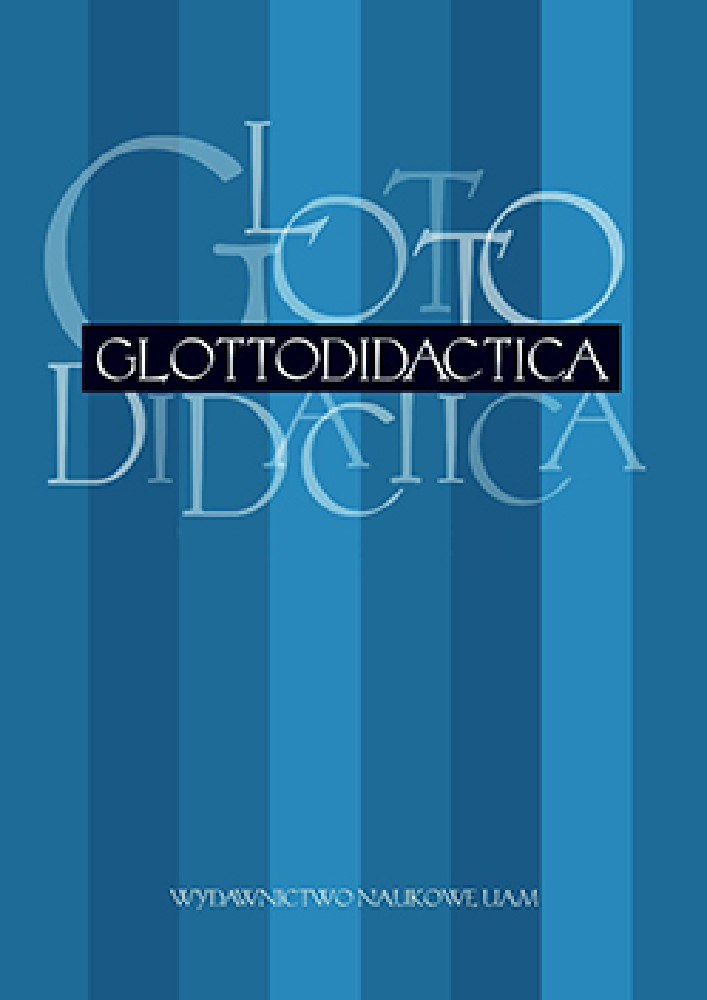Résumé
In a positively-oriented foreign language pedagogy, where learner autonomy is of utmost importance, focus should be placed on learner resilience. Subsequently, the formation of a resilient learner should be regarded as one of the aims of the formal schooling system on all levels of its functioning. The advantages of the presence of the resilient learner in a properly constructed ecosystem of the school are manifold and are, generally, aimed at generating a high degree of success in school tasks as well as at providing the human society with resilient participants.Références
Berkes, F., Colding, J., Folke C. (eds), 2003. Navigating social-ecological systems: building resilience for complexity and change. Cambridge: Cambridge University Press.
Cicchetti, D. (ed.), 1989. The emergence of a new discipline: Rochester symposium on developmental psychopathology. Hillsdale, N.J.: Lawrence Erlbaum Associates.
Doll, B., Lyon M.A., 1998. Risk and resilience: implications for the delivery of educational and mental health in schools. In: School Psychology Review 27/3, 248–263.
Folke, C., Carpenter, S., Elmqvist, T., Gunderson, L., Holling, C.S., Walker, B., 2002. Resilience and sustainable development: building adaptive capacity in a world of transformations. In: Ambio 31/5, 437–440.
Folke, C., Colding, J., Berkes, F., 2003. Synthesis: building resilience for adaptive capacity in
social-ecological systems. In: Berkes, F. et al. (eds) 352–387.
Holling, C.S., 1973. Resilience and stability of ecological systems. In: Annual Review of Ecology and Systematics 4, 1–23.
Jørgensen, S.E. (ed.), 2010. Encyclopedia of ecology. Amsterdam: Elsevier.
McCormick, B., 1995. History and state of the art in behavioural methods for hearing assessment in low-functioning children. In: Scandinavian Audiology 24 (Supplement 41), 31–35.
Masten, A.S., 1989. Resilience in development: implications of the study of successful adaptation for developmental psychopathology. In: Cicchetti, D. (ed.). Vol. 1, 261–294.
Masten, A.S., Best, K.M., Garmezy, N., 1990. Resilience and development: contributions from the study of children who overcome adversity. In: Development and Psychopathology 2, 425–444.
Masten, A.S., Gewirtz, A.H., 2006. Resilience in development: the importance of early childhood. In: Tremblay, R.E. et al. (eds), 1–6.
Masten, A.S., Obradović, J., 2006. Competence and resilience in development. In: Annals of the New York Academy of Sciences 1094, 13–27.
Matsinos, Y.G., 2010. Resilience. In: Jørgensen, S.E. (ed.). Vol. 4, 3000–3004.
Nicolopoulou-Stamati, P., Hens, L., Howard, C.V. (eds), 2007. Congenital diseases and the environment. Berlin: Springer Verlag.
Ong, A.D., Bergeman, C.S., Bisconti, T.L., Wallace, K.A., 2006. Psychological resilience, positive emotions, and successful adaptation to stress in later life. In: Journal of Personality and Social Psychology 91.4, 730–749.
Puppel, S., 2004. An outline of a domain-resource-agent-access-management (DRAAM) model of human communication: towards an ecology of human communication. In: Electronic Journal Oikeios Logos 1, 1–27.
Puppel, S., 2009. Healthy’ first language acquisition is dependent on the necessarily interlocked and synergistic nature of the ‘biological-psychological’ and ‘social-cultural’ milieus. In: Electronic Journal Oikeios Logos 5, 1–10.
van Schrojenstein Lantman-de Valk, H.M.J., van den Akker, M.A., Maaskant, M.J., Urlings, H.F.J., Kessels, A.G.H., Crebolder, H.F.J.M., 1997. Prevalence and incidence of health problems in people with intellectual disability. In: Journal of Intellectual Disability Research 41/1, 42–51.
Thomsen, K., 2002. Building resilient students: integrating resiliency into what you already know and do. Thousand Oaks, CA: Sage Publications/Corwin Press.
Tremblay, R.E., Barr, R.G., Peters R. De V. (eds), 2004. Encyclopedia on early childhood development. Montreal: Centre of Excellence for Early Childhood Development. Available at: <http://www-encyclopedia.com/documents/Masten-Gewirtz ANGxp.pdf>.
Waxman, H.C., Padrón, Y.N., Gray, J.P. (eds), 2004. Educational resiliency: student, teacher, and school perspectives. Greenwich, CT: Information Age Publishing.
Licence
Auteurs
Les auteurs de textes acceptés pour publication dans la revue Glottodidactica sont tenus de remplir, signer et renvoyer à l'adresse de la rédaction, un accord sur l'octroi d'une licence gratuite pour les œuvres, avec obligation d'accorder une sous-licence CC.
Conformément à cet accord, les auteurs des textes publiés dans la revue Glottodidactica accordent à l'Université Adam Mickiewicz de Poznań une licence non exclusive et gratuite et autorisent l'utilisation de la sous-licence Creative Commons Attribution-NoDerivatives 4.0 International (CC BY-ND 4.0).
Les auteurs se réservent le droit de disposer librement de l'œuvre.
Utilisateurs
Les utilisateurs d'Internet intéressés ont le droit d'utiliser les œuvres publiées dans la revue Glottodidactica depuis 2016, selon les conditions suivantes :
- Attribution – obligation de fournir, conjointement avec l'œuvre distribuée, des informations sur l'auteur, le titre, la source (lien vers l'œuvre originale, DOI) et la licence elle-même.
- Aucune modification – l'œuvre doit être préservée dans sa forme originale. Sans le consentement de l'auteur, il n'est pas possible de distribuer l'œuvre modifiée sous forme de traductions, publications, etc.
Les droits d'auteur sont réservés pour tous les textes publiés avant 2016.
Autres
L'Université Adam Mickiewicz de Poznań conserve les droits sur la revue dans son ensemble (mise en page, forme graphique, titre, conception de la couverture, logo, etc.).
A PARTIR DE L’ANNEE 2015, LES ARTICLES PUBLIÉS DANS LA REVUE SONT DISPONIBLES SOUS LICENCE CREATIVE COMMONS : https://creativecommons.org/licenses/by-nd/4.0/deed.fr




